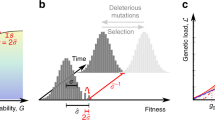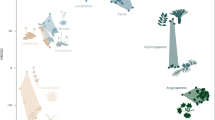Abstract
THE recent work of Prof. H. de Vries on the origin of species by mutation has attracted a great deal of attention, although it cannot be said that the facts he presents are of a new kind, or that, taken by themselves, they prove anything about the origin of species. The great merit of the work is to be found in its clear presentation of the subject, with carefully worked out examples, at an opportune time. In former years botanists were not so ready as they are to-day to recognise apparently minor characters as specific, and the great variety of slightly modified plant forms passed almost unnoticed. It was not considered worth while to investigate the polymorphism of the old specific aggregates, and men like Jordan, who did so, were not regarded altogether favourably. The old conception of species seemed to give us a superabundance of plant types, taking the world over; and many botanists thought, as one recently said to me, that it was impossible to catalogue and name the minor forms, because they were infinitely numerous. However, there has arisen a new school, especially dominant in America, which recognises the fact that many of the old specific names cover a number of types which are readily distinguishable from one another. These may intergrade, but in many cases they do not seem to do so, and though the distinctions may seem small, they are perfectly constant. The result of the new investigations is in many cases to increase the number of recognised species four-fold, ten-fold, or more. Now when one comes to study these numerous species, it is evident that much of the difference is not absolute, but consists in different combinations of the same or similar characters, like the patterns of a kaleidoscope. With a little ingenuity, one could almost predict the characters of undiscovered forms. Heredity seems every now and then to take a new throw of the dice, with results exactly such as de Vries has described. The successful throws are those which give results adapted to the environment, and these, under the laws governing the survival of the fittest, give us what we proceed to describe as new species.
Similar content being viewed by others
Article PDF
Author information
Authors and Affiliations
Rights and permissions
About this article
Cite this article
COCKERELL, T. De Vriesian Species. Nature 66, 174 (1902). https://doi.org/10.1038/066174b0
Issue Date:
DOI: https://doi.org/10.1038/066174b0
Comments
By submitting a comment you agree to abide by our Terms and Community Guidelines. If you find something abusive or that does not comply with our terms or guidelines please flag it as inappropriate.



